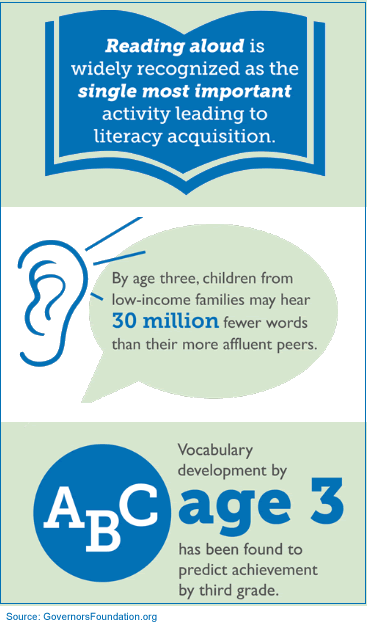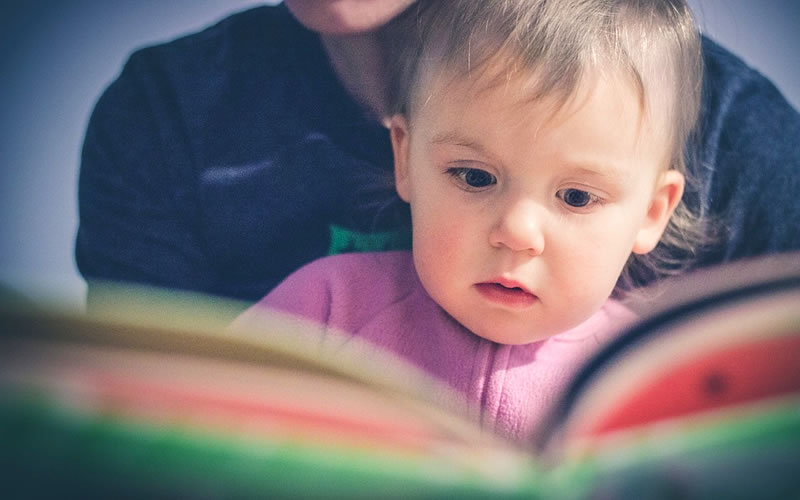By Andy Brack, editor and publisher | If you want real education reform, give a free book a month to every child under five in South Carolina.
 It’s a common-sense, quick, practical, affordable and proven investment that can make more of a difference than most of the fiddle-faddle in thick policy papers. It’s low-hanging fruit. And it’s easily achievable because there’s a delivery network already in place. It’s something Gov. Henry McMaster and legislators like GOP House Speaker Jay Lucas and Democratic Sen. Vincent Sheheen should embrace now.
It’s a common-sense, quick, practical, affordable and proven investment that can make more of a difference than most of the fiddle-faddle in thick policy papers. It’s low-hanging fruit. And it’s easily achievable because there’s a delivery network already in place. It’s something Gov. Henry McMaster and legislators like GOP House Speaker Jay Lucas and Democratic Sen. Vincent Sheheen should embrace now.
Providing free, age-appropriate books to children under 5 nourishes them at the critical time their brains are developing. Building small libraries in the homes of young families in South Carolina is an investment that can propel South Carolina forward from its terminal bottom ranking in education.
Mailing monthly books to kids is working now. It got started 22 years ago in Tennessee with the creation of Dolly Parton’s Imagination Library. Since then, the program mails more than a million books to children all over the world.
Patty Bennett-Uffelman of Charleston knows the program is working. Her organization, Begin with Books, sends books monthly to more than 4,800 children in Charleston County through the Imagination Library. She recalls a mother who approached her with a 5-year-old girl who received “Goodnight, Gorilla” through the program. The girl hugged the book and the mother shared how “gorilla” was the girl’s second word – just after “mama.”
 “The mere presence of books in the home generates an enriched vocabulary, enriched conversation, and is more likely to introduce more formal sentence expression in low-literacy homes,” Bennett-Uffelman told us.
“The mere presence of books in the home generates an enriched vocabulary, enriched conversation, and is more likely to introduce more formal sentence expression in low-literacy homes,” Bennett-Uffelman told us.
Studies show Tennessee participants “significantly outperformed non-participants on kindergarten literacy assessments,” according to the Palmetto Project. “They maintained that edge through the third grade, and even into high school.” The evidence showed elementary school assessments of participants that were 7 percent higher than non-participants.
Currently, the Palmetto Project operates a program that sends an additional 31,000 books to children under 5 into 33 other counties across the state, including Horry, where Parton pays for that county’s 7,721 kids to get early books.
Steve Skardon, head of the organization, says children who get the free books are one-third more likely to be kindergarten-ready. They are much more likely to have better skills for oral communication, written language and math. And parents in the program are three times more likely to read to their children, a key for early learning and vocabulary achievement.
“This is not about teaching children to read,” Skardon says. “It’s about growing their intellectual capacity to read in the future during those early years when it matters.
“Never has there been so much evidence that traditional thinking about early literacy is wrong. Yet, we continue to teach reading the way we did generations ago and somehow expect to get different outcomes.”
While 36,000 children under 5 are participating in the program thanks to volunteers, nonprofits, service clubs and donors, there’s not enough funding to pay for the remaining 250,000 S.C. children to get a free book once a month. The annual cost per child is $33, including books and postage.
The Palmetto Project estimates the cost to make the program available to all children – only about two-thirds of whom would be expected to enroll – would be about $6 million a year. And all that the state would have to do would be to write an annual check. It wouldn’t have to hire any other employees or put a burden on state agencies because the delivery and logistics network is in place.
Expanding the Imagination Library statewide is reasonable, affordable no-brainer. It’s the perfect investment to prepare children, particularly those in low-income families, to learn at the time it is most critical in their development. And if they don’t get this intellectual fertilization? They won’t be as ready as they could be for school and will start out behind, just like they do today.
North Carolina has committed to $10.5 million a year to fund the Imagination Library. Arkansas is organizing an $8 million foundation to kick it off. Can’t South Carolina adopt this practical education strategy to nurture children so they can be ready to learn when they get to school?
- Have a comment? Send to: editor@charlestoncurrents.com




 We Can Do Better, South Carolina!
We Can Do Better, South Carolina!

























One Comment